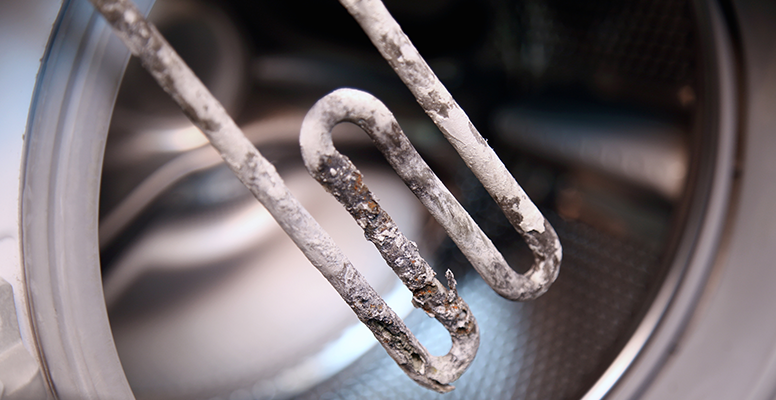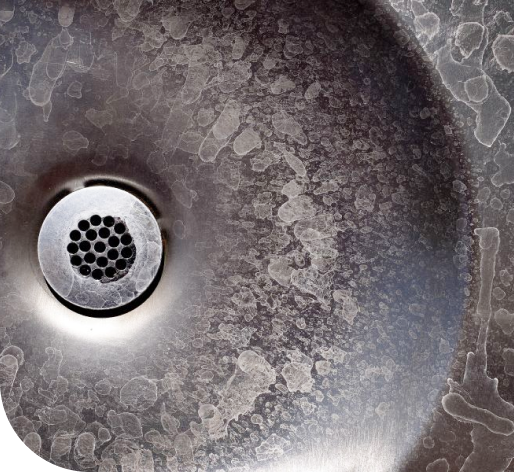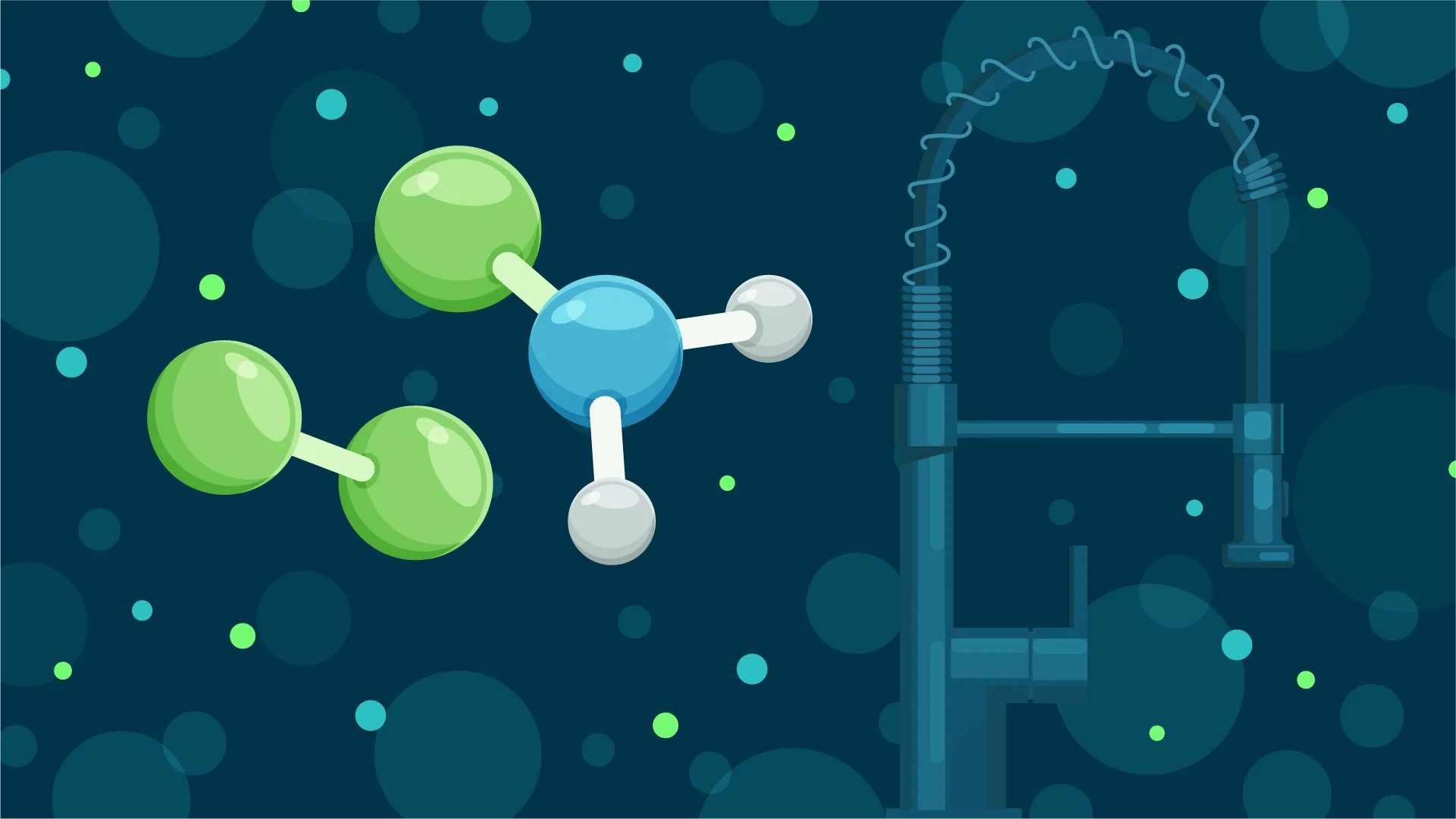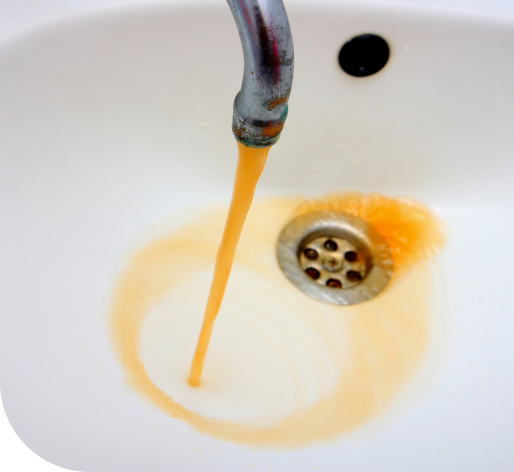For instance, water from wells may have variable quality, and there may be a risk of contamination.
An aging water distribution system or violations of federal drinking water standards could also adversely affect your home’s water supply. Additionally, issues with a home’s plumbing could impact the quality of water.
It’s important for you to know that some water issues may not be immediately evident. Hence, we conduct water tests to determine if any water treatment measures are necessary, and we offer a range of options to address the specific needs of your household or business.
Scale Buildup This is the most common problem caused by hard water. Minerals can build up over time in your pipes and appliances, reducing the efficiency of your water heater, washing machine, dishwasher, and other water-based appliances.
Soap Inefficiency Hard water reacts with soap to form a scummy residue instead of lather. This can result in needing to use more soap or detergent, thus increasing your expenses.
Dry Skin and Hair The minerals in hard water can leave a residue on your skin and hair. This can cause your skin to feel dry and itchy and your hair to be dull and hard to manage.
Stains and Spots Hard water can leave spots on glasses and silverware washed in the dishwasher. It can also leave stains on sinks, tubs, and showers.
Reduced Lifespan of Appliances The scale buildup from hard water can cause appliances to wear out quicker than they would with softened water.
Unpleasant Taste or Smell Some people find that hard water has an unpleasant taste or smell.
Water softeners, like those from Kinetico, can help to alleviate these problems by removing the hard minerals from the water to soften it.


Taste and Odor Chlorine and chloramines can significantly affect the taste and odor of your water. Many people describe the taste as “chemical” or “swimming pool-like.”
kin and Eye Irritation Both chlorine and chloramines can cause skin and eye irritation, especially in sensitive individuals. Some people may experience dry and itchy skin, while others may get red and irritated eyes after showering or bathing in chlorinated water.
Health Concerns While the levels of chlorine and chloramines found in tap water are generally safe for most individuals, some studies suggest that long-term exposure might be linked to more serious health concerns. These can include respiratory issues (particularly in those with asthma), certain cancers, impact on the immune system, and others. Remember, this is highly dependent on exposure levels and additional factors.
Harm to Aquatic Life Chlorine and chloramines are toxic to fish and other aquatic animals. If you’re filling an aquarium, pond, or fish tank with tap water, you will need to neutralize or remove these compounds.

Iron and manganese are two naturally occurring minerals often found in well water and even sometimes in municipal water supplies. While they are essential nutrients in our diet, high concentrations in water can lead to several issues:
Taste and Color High levels of iron can give water a metallic taste. Iron and manganese can both cause water to turn a brownish or blackish color, respectively.
Staining Iron often leaves reddish or orange rust stains on fixtures, laundry, and appliances. Manganese, on the other hand, leaves black or purple stains. The stains can be tough to remove and can ruin clothing and other fabrics.
Pipe and Appliance Blockage Iron and manganese can accumulate in pipes and water-operated appliances, causing blockages. Over time, this can reduce water flow and harm the efficiency of these systems.
Health Concerns While iron and manganese are generally not harmful at the levels found in drinking water, in excess amounts, they can have health impacts. For instance, excessive iron consumption can lead to iron toxicity, while manganese at high levels can impact neurological health.
Biological Growth Certain bacteria feed on iron and manganese and can cause a slime buildup in toilets, pipes, and other plumbing fixtures.
To combat these issues, specific filtration methods are needed. For instance, a water softener can help with iron that is in a dissolved state (also known as ferrous or clear water iron). For higher levels of iron or manganese, or when it is in a non-dissolved state, more advanced filtration like oxidizing filters may be necessary.

The “rotten egg” smell in water usually comes from hydrogen sulfide gas (H2S) or sulfur bacteria. This can cause several issues:
Taste and Smell The most immediate effect of H2S or sulfur bacteria is the unpleasant “rotten egg” smell and taste in the water. This can make the water unpalatable or unpleasant for drinking, cooking, or bathing.
Corrosion Hydrogen sulfide can corrode plumbing metals, such as iron, steel, copper, and brass, and it can expose to lead in older pipes.
Staining It can tarnish the silverware and discolor brass and copper utensils.
Health Effects In very high concentrations (rare in residential settings), hydrogen sulfide gas can be harmful. However, its smell would alert you long before it reached harmful levels.
Appliance Damage Hydrogen sulfide can cause black stains on laundry and yellow or black stains on bathroom fixtures.
Biofilm Formation Sulfur bacteria, which can also cause the “rotten egg” smell, can produce a slime that can clog plumbing and cause an increase in the growth of other bacteria.
A water treatment professional can help determine the source of the smell and recommend an appropriate treatment, such as a filtration system for hydrogen sulfide removal or chlorine disinfection for sulfur bacteria.


System
Maintenance
Filter
Change
Questions
& Problems
We are a locally owned and operated full-service water filtration company, specializing in both residential and commercial systems. We sell water systems to consumers and new home builders.
We cater to a large service area covering the Houston area. Trust in our more than 20 years of experience to provide all the right equipment and products to ensure that you get the safest and cleanest water.
In 1990, Rayne Systems LLC served the area with quality water conditioning systems. Now, the name has changed to Infinity Water LLC.
We are state licensed and insured.




